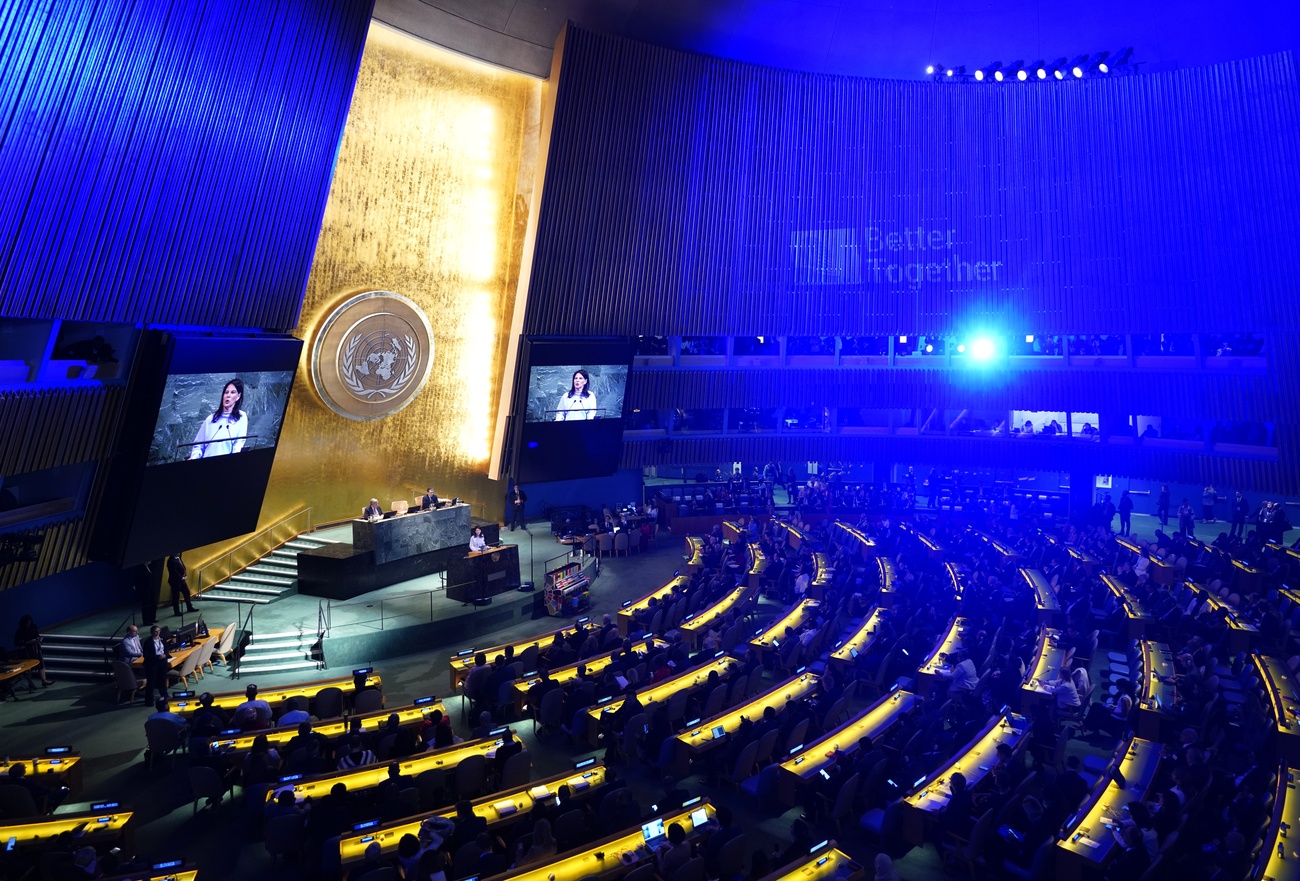
Drought, hunger, and war
A few weeks ago, I went to the weekly United Nations aid agency briefing in Geneva, and heard the World Meteorological Organisation (WMO) predict that Somalia’s next rainy season, due in October, could fail.
Across the Horn of Africa there has been prolonged drought. Somalia has already had four successive failed rainy seasons. Thousands of people are on the move because their crops have failed, and their livestock have died. So the prospect of the rains failing again is truly terrifying.
I wanted to know though, how the WMO could make such a prediction, so far in advance? And I wanted to find out what UN aid agencies on the ground in the Horn of Africa made of such forecasts, and what they were doing to prepare.
To find out, the WMO’s specialist in drought, climate change, and agriculture, Bob Stefanski, joined us on our Inside Geneva podcast, together with UNICEF’s deputy regional director for eastern and southern Africa, Rania Dagash. On a separate day, she had also joined the UN briefing, to warn of skyrocketing levels of child malnutrition in Somalia.

More
Inside Geneva: drought and food insecurity
Consistent warning signs
But first to those predictions. As Stefanski explains on Inside Geneva, they, like all weather forecasts, are not 100% guaranteed to be correct, that would be impossible. But the WMO collates and analyses weather and climate data from national meteorological offices across Africa, these produce seasonal forecasts based on that data, and those forecasts are consistent; all of them predict “below normal rainfall” in October.
That Stefanski says, is a real “cause for concern.” So, is this climate change? It certainly could be. We know that climate change is associated with extreme weather events; sometimes violent storms, but sometimes also drought. And over the last decades, rainfall across the Horn of Africa has been decreasing.
“We have observed decreases in rainfall over the last few years,” Stefanski explains. “We see a decreasing amount of rainfall from 2% to 7% per decade.”
Perhaps that doesn’t sound like much, but cumulatively, a steady decrease in rainfall over the years will make some crops impossible to grow and some agricultural land unusable.
Immediate needs
But the lack of water is also having an immediate effect. Aid agencies are reporting more and more people leaving their own villages, and trekking long distances looking for food and water. UNICEF’s Dagash, when she joined us on Inside Geneva, had just returned from a UNICEF feeding centre. “I saw two boys, twins, they’re one year old, they’re malnourished severely, the children and the mother. And she had walked for 160 kilometres to reach an area where there is some food distribution”.
UN aid agencies have been warning for months about rising malnutrition in drought affected areas, in the Sahel as well as the Horn of Africa. Rising food and fuel prices caused by the Covid-19 pandemic’s disruption of supply chains were already making humanitarian relief more expensive. Now Russia’s blockade of Ukraine’s grain exports has made the situation even more dire.
The World Food Programme buys a lot of its grain from Ukraine. Instead of stepping up its support to drought affected communities, it has had to cut food rations to some of the most vulnerable people in the world.
At the same time, many aid budgets, for South Sudan, or Yemen, Mali, or Somalia, are not fully funded. Some have received just a fraction of what the UN estimated they would need, and those budgets were prepared before Russia’s invasion sent food and fuel prices soaring still higher.
Diverted attention
Senior aid officials in Geneva publicly welcome the outpouring of support for Ukraine. Privately, they are also extremely worried that the undoubtedly much needed support for Ukraine will take attention from away other crises.
“Governments keep telling us the support for Ukraine is additional to their other humanitarian spending,” one senior UN official told me. “So far, we don’t see the evidence of that.”
What does that mean for Dagash and her colleagues at UNICEF? “We’re very concerned by the diverted visibility, we’re very concerned by the diverted resources that are going to Ukraine,” she says.
“This is no longer a drought response for us in Somalia, it is famine prevention.”
Short term emergency, long term change
In the short term, aid agencies say it is essential that the appeals for funds to meet the needs across the Horn of Africa, and the Sahel, be met immediately. If they are not, hundreds of thousands of people, many of them children, face starvation.
In the long term however, it seems clear that parts of Africa may not be able to sustain agriculture in the same way. Stefanski and his colleagues at the WMO say farming and pastoral communities will need support to adapt to climate change.
If communities want to stay on the land they have farmed for generations, more resilient crops will be needed, and other sources of water may have to be found. UNICEF is already helping some communities to drill new wells. In some cases they have to dig down up to two kilometres.
At the same time, climate change needs to be properly tackled. At COP 26 governments agreed on that. Now that conviction needs to be translated into real action. Somalia and other drought affected countries can’t afford rainfall to keep on decreasing.
And, there’s one other thing the humanitarian community agrees would help the thousands, possibly millions, now facing famine. A lifting of the grain blockade, and, ultimately, an end to this utterly senseless, unprovoked war.

In compliance with the JTI standards
More: SWI swissinfo.ch certified by the Journalism Trust Initiative



























You can find an overview of ongoing debates with our journalists here . Please join us!
If you want to start a conversation about a topic raised in this article or want to report factual errors, email us at english@swissinfo.ch.